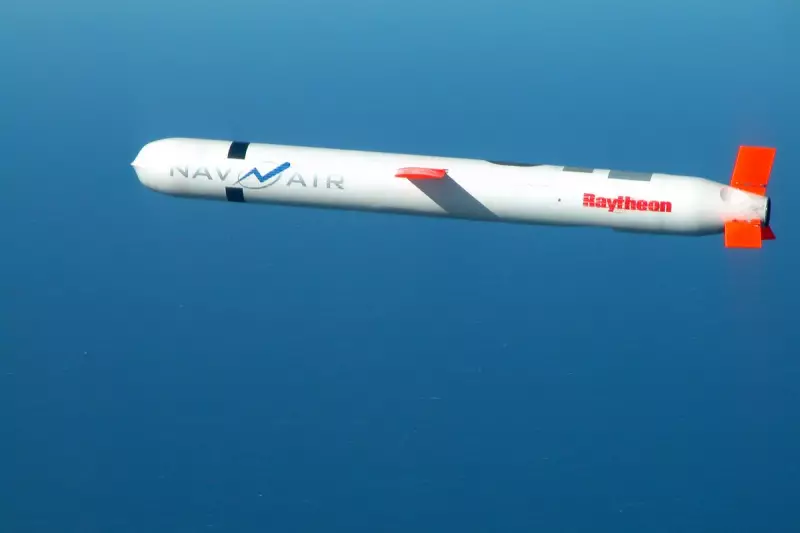
In a significant escalation of military support, the United Kingdom has confirmed the deployment of advanced Tomahawk cruise missiles to Ukraine, signalling a major shift in the Western approach to the ongoing conflict. The move comes as Russia threatens "asymmetric" responses to increased NATO involvement.
Britain's Strategic Gambit
Defence Secretary Grant Shapps announced the deployment following months of deliberation within Whitehall. The long-range precision missiles represent a substantial upgrade to Ukraine's offensive capabilities, potentially altering the strategic balance in the Black Sea region.
"This isn't merely about supplying weapons," a senior defence official stated. "It's about providing Ukraine with the tools to defend its sovereignty and push back against Russian aggression in internationally recognised waters."
Moscow's Ominous Warning
The Kremlin has responded with characteristic fury, with senior officials warning of "consequences beyond Ukraine's borders." Russian Defence Minister Sergei Shoigu specifically referenced the potential for targeting NATO supply routes and infrastructure.
"The West is playing with fire," declared Maria Zakharova, spokeswoman for the Russian Foreign Ministry. "Every new weapon system delivered to Kyiv brings us closer to direct confrontation."
Black Sea Tensions Reach Boiling Point
Recent weeks have seen dramatic developments in the maritime domain, with Ukraine successfully targeting multiple Russian vessels using unconventional methods. The Tomahawk deployment could provide Kyiv with more conventional means to challenge Moscow's naval dominance.
Military analysts suggest the missiles could be used to:
- Target Russian naval bases in occupied Crimea
- Disrupt supply lines across the Kerch Strait Bridge
- Challenge Moscow's blockade of Ukrainian ports
- Protect vital grain export routes
Political Implications and Western Unity
The UK's decision comes amid concerns about potential shifts in US policy should Donald Trump return to the White House. European leaders are increasingly discussing "Trump-proofing" their Ukraine strategy, with Britain positioning itself as a consistent ally regardless of American political developments.
NATO officials have expressed cautious support for the move, while emphasising the alliance's defensive nature. "This is about restoring Ukraine's ability to defend itself," a Brussels-based diplomat explained. "Not about NATO directly engaging Russian forces."
What Comes Next?
The immediate concern among defence experts is how Russia will implement its promised "asymmetric" response. Possibilities include:
- Increased cyber attacks against Western infrastructure
- Hybrid warfare tactics in Eastern Europe
- Economic retaliation through energy markets
- Naval provocations in the Baltic or Black Seas
As the conflict enters its third year, the Tomahawk deployment represents both an escalation and a calculated risk. The coming weeks will reveal whether this move strengthens Ukraine's position or triggers the broader confrontation that all sides claim to want to avoid.





